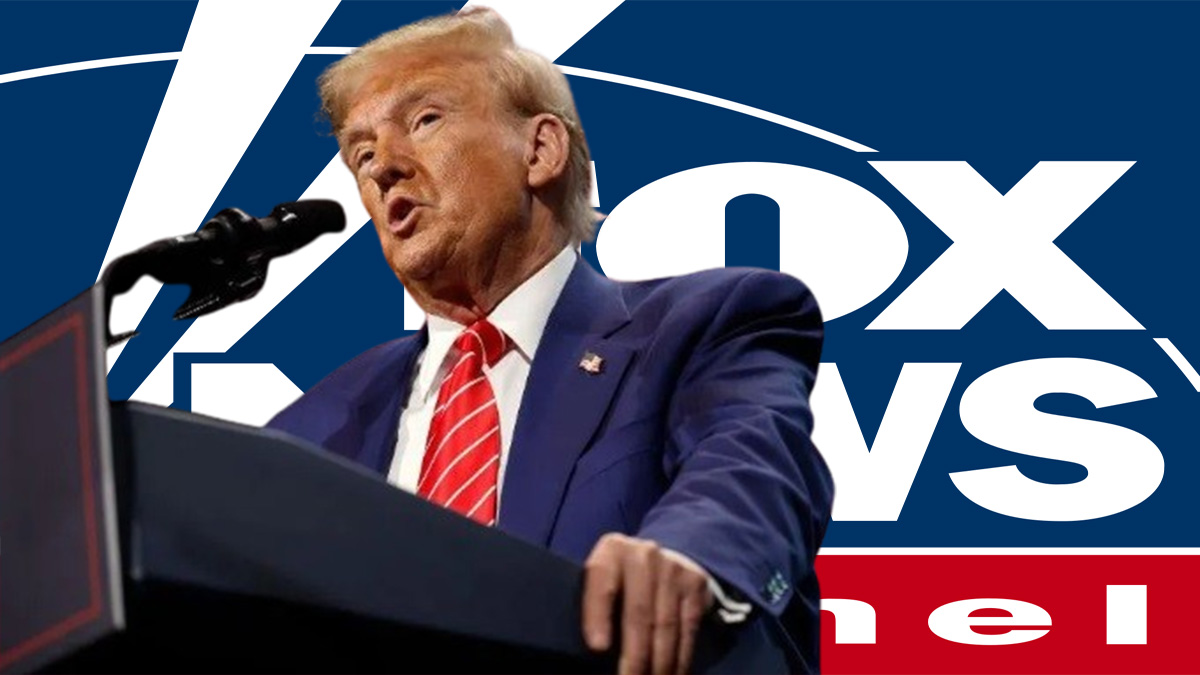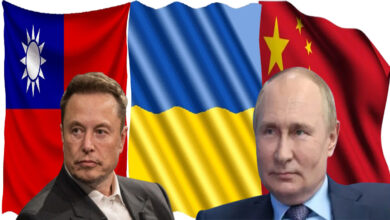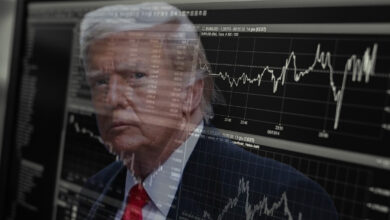Fox News Hosts All-Women Town Hall with Trump: A Closer Look

In a bold move, Fox News recently hosted an all-women town hall featuring former President Donald Trump. This event aimed to connect with female voters and address pressing issues that matter to them. But did it truly represent the diverse voices of women?
The Setting
The town hall took place in Georgia, a state known for its vibrant political landscape. Women from various backgrounds gathered, eager to engage with Trump on topics like reproductive rights and transgender issues. The stage was set for an open dialogue.
Questions That Matter
During the event, questions ranged from reproductive laws to healthcare access. Female voters wanted clarity on how Trump’s policies would impact their lives. However, many felt the discussion lacked depth and representation.
A Selective Audience
One significant point of contention arose when it was revealed that the audience was predominantly made up of local Republican supporters. This raised eyebrows about the authenticity of the dialogue. Were all voices truly heard? Or were dissenting opinions silenced?
Editing Controversy
Fox News edited parts of the broadcast, removing segments where audience members vocally supported Trump. This decision sparked debates about transparency and media integrity. Viewers questioned whether they received a complete picture of the event.
The Impact on Female Voters
Female voters are a crucial demographic in any election cycle. They care deeply about issues affecting their families and communities. Events like this town hall should strive for inclusivity, allowing diverse perspectives to shine through.
Georgia Federation of Republican Women: A Shift in Messaging
On Wednesday, the Georgia Federation of Republican Women took to Facebook to share their enthusiasm about a recent event. They proudly posted photos from the venue, expressing they were “Super excited for the opportunity of hosting this event right here in Georgia!”
However, shortly after CNN and Fox News reached out for clarification, the tone shifted. The post was edited to reflect a more reserved stance: they were now “excited for the opportunity of attending this event right here in Georgia!”
This change raised eyebrows. The group’s president, Pam Lightsey, later clarified that they had not hosted the event at all. This contradiction has sparked discussions about transparency and communication within political organizations.
The initial excitement showcased their eagerness to engage with community events. But the swift edit raises questions: Why the sudden change? Was there pressure from media inquiries?
In politics, messaging is crucial. A single word can alter perceptions significantly. As organizations navigate public relations, clarity is key.
The incident serves as a reminder that social media can amplify both excitement and scrutiny. For groups like the Georgia Federation of Republican Women, maintaining a consistent message is essential.
As we move forward, it will be interesting to see how they address these challenges and continue engaging with their community. After all, clear communication builds trust—an invaluable asset in today’s political landscape.
The Republican Women of Forsyth County: A Glimpse into a High-Profile Event
Recently, the Republican Women of Forsyth County shared an intriguing video from a notable event featuring former President Donald Trump and Fox News host Harris Faulkner. The footage captured attendees engaging in lively discussions with Trump, showcasing the excitement and energy of the gathering.
However, the event stirred some controversy. A spokesperson for Fox News clarified to CNN that this was not organized by any Republican group but was solely a Fox News initiative. This distinction raises questions about the nature of political gatherings and media involvement.
Interestingly, while the event was promoted as being “held with an audience entirely composed of women,” details about who these women were remained undisclosed. This lack of transparency has led to speculation about the audience’s demographics and their political affiliations.
The choice to focus on women at this town hall aligns with broader trends in politics, where female voices are increasingly sought after and celebrated. Yet, without clear insights into the audience composition, it’s challenging to gauge the true impact or representation of such events.
In today’s polarized climate, understanding who is engaged in political discourse is crucial. Events like these highlight both the enthusiasm among supporters and the complexities surrounding media narratives.
As discussions around women’s roles in politics continue to evolve, events like this one spark important conversations about representation and engagement within various communities. It remains essential for media outlets to provide clarity on their events’ makeup to foster trust and transparency with their audiences.
Trump Town Hall: A Spotlight on Support and Controversy
In a recent town hall, former President Donald Trump faced questions from a predominantly supportive audience. The first question came from Lisa, the president of the Fulton County Republican Women group, who inquired about the economy. This detail was notably absent from the network’s coverage, raising eyebrows about transparency.
The atmosphere was charged with enthusiasm. Attendees showed their allegiance through both their questions and attire. Alicia, another audience member, expressed gratitude to Trump for addressing a room filled with women whom she claimed the current administration might label as “domestic terrorists.” Her comment elicited laughter and applause, highlighting the camaraderie among supporters.
However, not all of Alicia’s sentiments made it to air. Fox News edited her statement that she had already voted for Trump. In an audio recording captured by a CNN reporter, Alicia stated, “I proudly cast my vote for you today. I hope they count it.” This omission sparked discussions about media representation and bias.
Such moments reveal the complexities of political discourse in America today. Supporters rally around figures like Trump while navigating a media landscape that often shapes narratives selectively. As town halls continue to serve as platforms for engagement, they also reflect deeper societal divides.
The Missing Moments: A Glimpse into Trump’s Rally
In the world of televised events, editing is a common practice. However, some moments are too significant to overlook. Recently, during a rally featuring former President Donald Trump, certain remarks were notably absent from the Fox News broadcast.
One such moment involved singer Alicia Keys. Her brief comment was cut mid-question, leaving viewers puzzled. This highlights how editing can sometimes distort the context of an event.
Another key moment that vanished from the airwaves occurred when Trump engaged with the crowd. He asked who they were voting for, prompting an enthusiastic chant of “Trump, Trump.” This interaction showcased the energy and support within the audience but went unreported by Fox News.
When it comes to political rallies, crowd reactions tell a powerful story. At this event, women filled the venue with palpable enthusiasm. They welcomed Trump with a standing ovation and erupted in applause throughout his speech.
Trump didn’t hold back either. He labeled President Joe Biden as “the worst president in history” and Vice President Kamala Harris as “the worst vice president.” Each declaration was met with roaring cheers from his supporters.
The lack of coverage on these moments raises questions about media representation and selective broadcasting. While networks often edit for time or content, what gets left out can shape public perception significantly.
The Dynamics of Political Events: A Closer Look
In the midst of a charged political atmosphere, one woman stood out in the crowd. Sporting an “RNC Delegate” hat, she embodied the spirit of grassroots engagement. Nearby, Rachel, adorned with a Trump pin on her blazer, posed a question to the former president. This moment encapsulated the fervor and complexity of modern political gatherings.
During the event, hosted by Fox News’ Faulkner, a pivotal question arose: Should biological men and boys compete against women and girls in sports? Almost every hand shot up in agreement. This overwhelming response highlighted a significant concern among attendees—a reflection of broader societal debates.
However, as CNN later reported, Trump made at least 19 claims during this one-hour town hall that were deemed false. Interestingly, Faulkner chose not to fact-check these statements live on stage. This raises questions about media responsibility and the role of journalists in ensuring accuracy during such events.
The Independent provided further insight into the audience makeup at this Georgia gathering. Many attendees were affiliated with local Republican groups invited by Fox News. Yet Rachel’s experience painted a different picture. Identified as a Trump supporter by anchor Sandra Smith, she clarified her position: “I’m nobody and I’m not registered with anybody.” Her story illustrates how individuals can feel connected to larger movements without formal affiliations.
Rachel discovered the meeting through her local county Facebook page—a testament to how social media continues to shape political engagement today. Her perspective adds depth to our understanding of who attends these events and why they matter.
In summary, political events are more than just rallies; they are complex interactions between individuals and ideas. They reveal not only support for candidates but also highlight pressing issues that resonate within communities. As we navigate this landscape, it’s crucial to listen closely—to both the loud voices and those that remain unheard.







